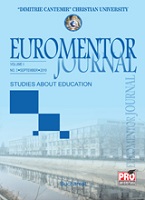ELECTRONIC DICTIONARIES: EVOLUTION AND CLASSIFICATION
ELECTRONIC DICTIONARIES: EVOLUTION AND CLASSIFICATION
Author(s): Olena BalalaievaSubject(s): Electronic information storage and retrieval, Lexis, Sociolinguistics, Translation Studies
Published by: Editura Pro Universitaria
Keywords: electronic lexicography; electronic dictionary; lexical resource; classification; criterion;
Summary/Abstract: The article deals with the phenomenon of the development of electronic lexicography and the problem of classifying electronic dictionaries. Findings reveal, that Among researchers, there is no single opinion on the content, scope and features of the basic concept of electronic lexicography because electronic dictionaries are a relatively new phenomenon, which has evolved over several decades from machine-readable dictionaries and exact copies of paper editions to complex digital lexicographic systems with a wide arsenal of functions. Modern electronic dictionaries tend to hybridize, often combining alphabetic and thematic ways of organizing material, lexical and encyclopedic information, which complicates the possibility of distinguishing clear differential features of a particular lexicographic resource and cruelly assigning it to one or another type. The plurality of criteria for comparing dictionaries complicates the construction of a unified general classification of dictionaries of different types, and a multidimensional characterization of a particular dictionary can be carried out using the facet method using the basic list of parameters, which remains open and can be replenished with the development of the system of lexicographic resources.
Journal: Euromentor Journal - Studies about education
- Issue Year: XIV/2023
- Issue No: 2
- Page Range: 66-81
- Page Count: 16
- Language: English

